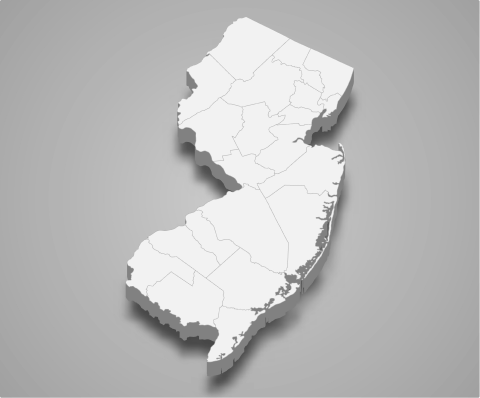We handle Estate Planning in both NY and NJ
Select the state below for more details
Our Working Process in 5 Steps
Contact Us
Speak with an attorney about your circumstances and the estate plan you want to create.
Step-1
Gather your Information
Use our client portal to gather information on your assets, desired beneficiaries and other information your attorney will need to create your estate plan.
Step-2Meet with Us
Meet with an attorney for a longer discussion about your desired estate plan. Our attorneys will use the information you have provided us in assisting you to create the plan that best meets your needs.
Step-3We Get to Work
Our attorneys will draft the estate plan and provide you with a copy for comments and edits.
Step-4Signing and Storing
Once you are satisfied with the estate plan we have created we’ll provide instructions on signing and storing the documents so that they are legally valid and available when needed.
Step-5We Make Estate Planning Easy for Our Clients
Few Reasons to Choose Rosenblum Law

Quick & Easy Process
Customized to Your Needs
Secure Portal to Add and Store Your Information
Estate Planning Solutions Available
Last Will and Testament
Designate how your assets will be handled upon your passing. Name guardians for minor children.
Living Trust
Create a new entity to hold your assets and designate how they are to be distributed while you are living and when you pass. Avoid probate. Protect assets from creditors of beneficiaries.
Healthcare Proxy
Designate a person (and backups) to make decisions regarding your healthcare and medical treatment in the event you are incapacitated and unable to do so yourself.
Living Will
Provide your proxy, healthcare team and loved ones with instructions on how your healthcare should be handled in the event you are incapacitated. Designate organ donor status, ensure compliance with religious requirements.

Durable General Power of Attorney
Designate a person (and backups) to make decisions regarding your finances to protect your assets in the event you become incapacitated.

Custom Estate Plan Solutions
Create a custom plan for an estate that has large assets or other special requirements.
What is A Last Will and Testament?
A last will and testament lays out instructions for how to distribute one’s assets upon their death. This document is what most people think of when they are thinking of creating an estate plan, and it will in fact cover the estate planning needs of most people, at least when it comes to their assets.
Creating a last will and testament requires a person to gather all the information they have about their current assets and liabilities, and to decide how they would want those assets to be distributed if they were to pass away. This document also lays out who will be responsible for administering the estate, as well as any trusts that might need to be set up to manage the inheritance of a minor or other person requiring assistance in the event they are not able to manage their own finances.
Very importantly, a last will and testament is THE ONLY way parents in the State of New Jersey (and New York) can designate a guardian for their children should both of them pass away at the same time. If parents do not designate a guardian and something happens to them, the children’s guardian will be determined by the state through its court system. This can result in a messy affair and outcome that can–and should be–avoided.
The bottom line is that everyone over the age of 18 should have a last will and testament.
What is a Living Trust?
There are certain situations where a person may benefit by moving their assets into a living trust rather than just using a last will and testament. Most commonly, this is done to avoid the probate process and keep one’s assets private. It may also provide tax savings in certain situations.
Using a living trust allows individuals to move their assets into a new entity ahead of their passing, and then the new entity (the trust) will distribute the assets accordingly as laid out in the trust documents.
Living trusts are excellent tools for some high net worth individuals to avoid certain taxes, but for most people the tax savings is minimal. They also have the benefit of mostly avoiding probate (however anything not in the trust at the time of death will still need to go through this process). That being said, living trusts can be complicated to set up, and they require constant administration by a trustee while they are active. Before deciding to pursue this route, it’s smart to speak with a qualified attorney who will be able to determine if the benefits of this method of estate planning are right for you.
What is a Durable Power of Attorney for Healthcare (Healthcare Proxy)?
Setting up a plan for how your assets will be handled upon your death is one essential element of estate planning, but it’s not the only thing you need to address. Unfortunately as we age, many of us will encounter scenarios where we become incapacitated due to illness, but decisions about our future care and treatment will still need to be made.
Who will make these healthcare decisions for you? Either you will need to designate someone ahead of time through the use of a durable power of attorney for healthcare (or healthcare proxy), or the decision will be left to your loved ones to make, usually at the hospital, and always while under the extreme duress of dealing with an ailing loved one.
Don’t let this happen to you. Setting up a healthcare proxy is a very straightforward process, however it does require that you give thought to certain things that you may not have considered before. Our attorneys can guide you through the process of choosing and officially designating someone to act on your behalf in the event you require medical treatment, but are unable to make these decisions for yourself.
What is a Living Will?
You have a last will and testament, so your plan for handling your assets is set. You’ve spoken with an attorney and decided on a healthcare proxy to make medical decisions for you in the event you are unable to do so. These are two very important estate planning issues. But how do the people you designate know what to decide?
What if the treatment is uncomfortable, painful, or permanent? What if you’re in a vegetative state and unlikely to return to consciousness? What if your family disagrees with your healthcare proxy about the decisions they have been tasked with making?
We’ve seen many of these types of situations play out. These are real-life questions that many have faced, and the best way to address them is through the use of a living will. A living will is a document that lays out your thoughts and wishes regarding your healthcare in the same way a last will and testament lays out your wishes as to how your assets should be distributed.
Anyone that has designated a healthcare proxy should create a living will to give to that person and their loved ones so that everyone is on the same page when it comes to how this person should be treated with regard to their healthcare. Our attorneys will guide you through the questions you need to ask yourself before creating a living will, and then draft the document according to your wishes.
What happens if I die without an estate plan?
Your assets will be distributed according to the state law and not your own wishes.
Are estate plans expensive to create?
Not when you work with Rosenblum Law. We strive to create estate plans that fully meet our clients needs without providing them with unnecessary add-ons that can be costly. Most of our estate plans are provided on a flat fee basis.
This sounds like a lot of work, is it?
Creating an estate plan will require you to spend some time contemplating your future wishes as well as gathering all of the necessary information and documents the attorney will need to create the plan — but don’t worry, we make it easy for you! Our attorneys will get to know you and your circumstances so that they can assist you in creating a plan that meets your needs. We will provide you access to a secure client portal where you can add information and documents regarding your estate on your own time from anywhere with internet access.
I’m still young, do I really need an estate plan?
Absolutely. The world is an uncertain place and estate plans do more than just designate how assets are to be distributed. A good estate plan will make sure that minor children are taken care of in the event of an unexpected tragedy, as well as making sure that your healthcare is handled according to your wishes if you ever were to become incapacitated. This is an issue that affects people of all ages.
Should I Hire an Attorney For My Estate Plan?
There are several options for anyone looking to create an estate plan, including online wizards, state templates and forms, and of course, through the use of an experienced attorney. The question you need to consider is: Which method is best for you?
This question can only be answered by someone that has an understanding of your estate and your goals with regard to your assets and healthcare. At Rosenblum Law we offer our clients a comprehensive estate plan solution that is tailored to their specific needs without going over the top with complex legal solutions that might not necessarily suit a client’s needs. We offer flat-fee pricing that will accommodate most people’s needs, as well as other options for those with more complex estates. Call us today for a free consultation and get started toward having the peace of mind that comes with a well-thought-out and properly drafted estate plan.
Editorial Standards
Rosenblum Law is committed to delivering informative content of the highest quality. All content is subject to our rigorous editorial standards for relevance, accuracy, sourcing, and objectivity. Everything is fact-checked by an editor and reviewed for legal soundness by one of our practicing attorneys prior to being published.







